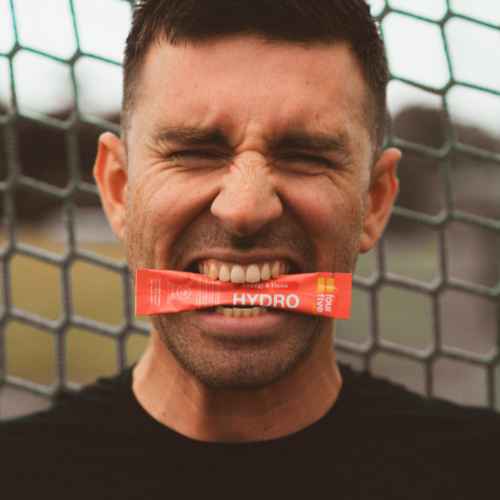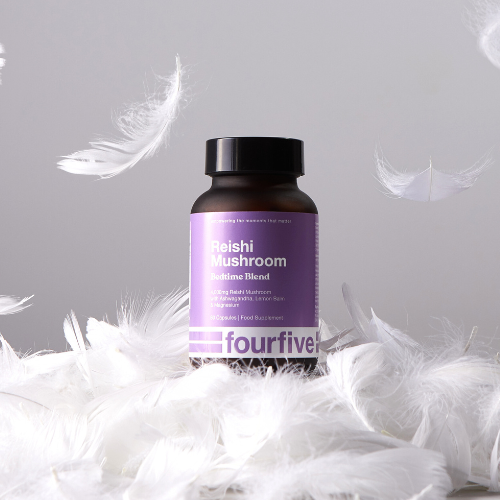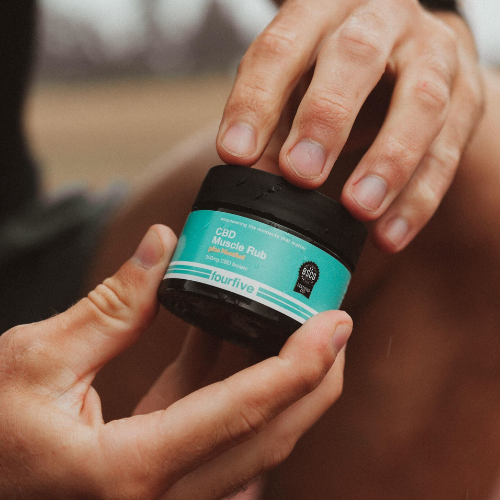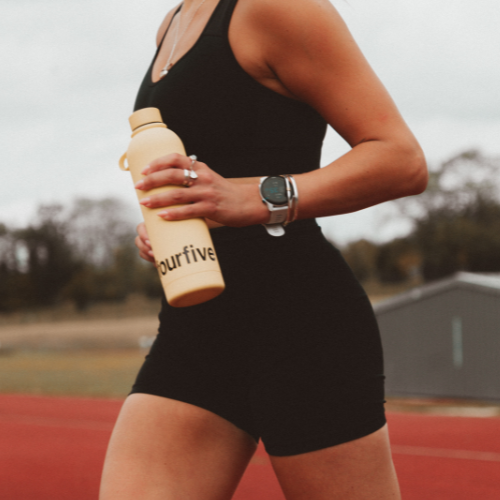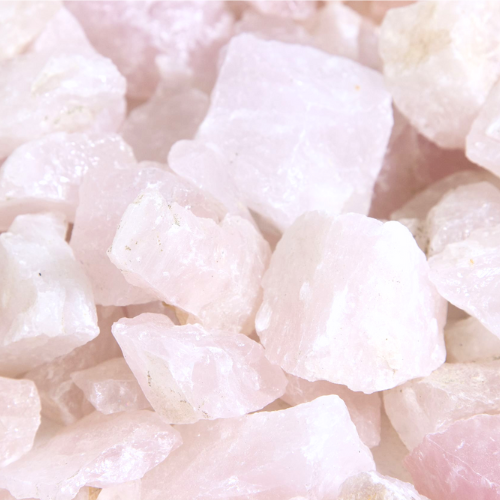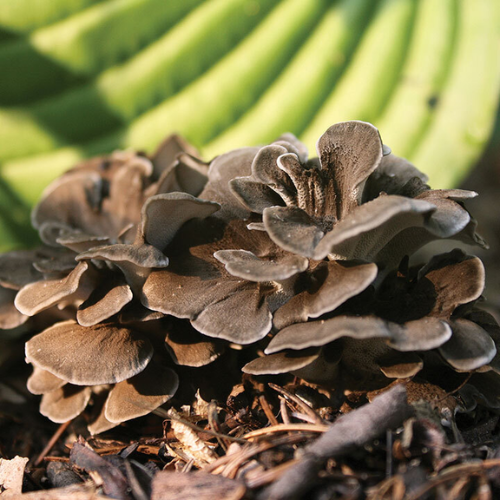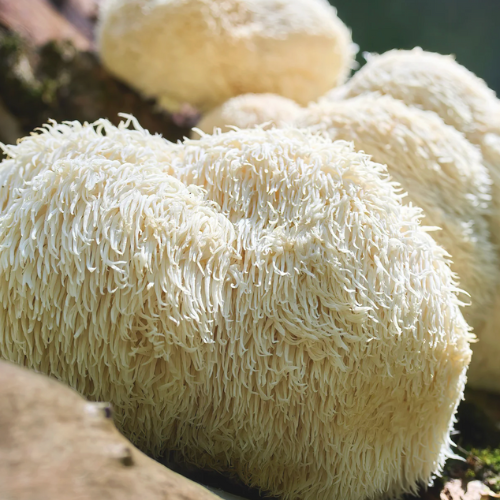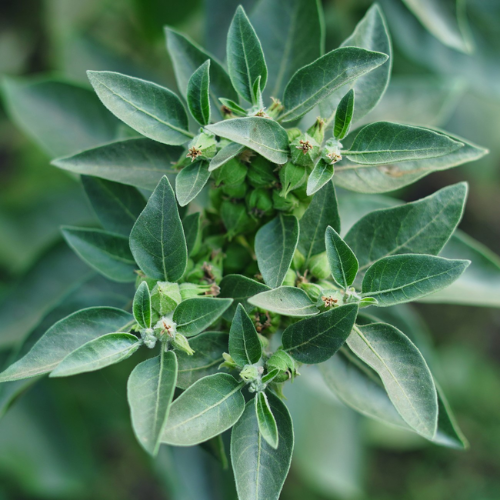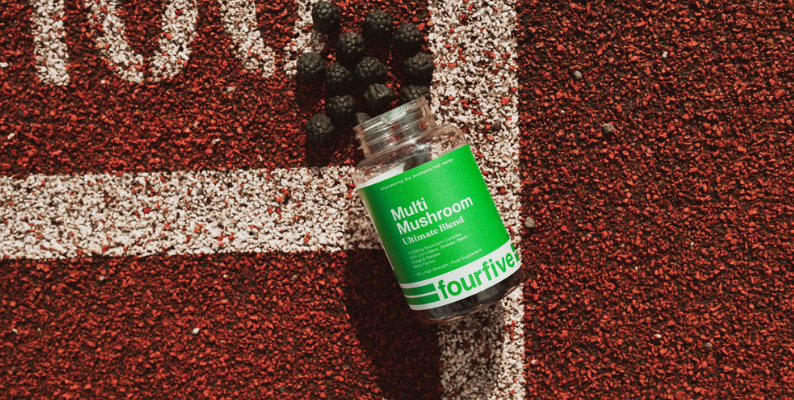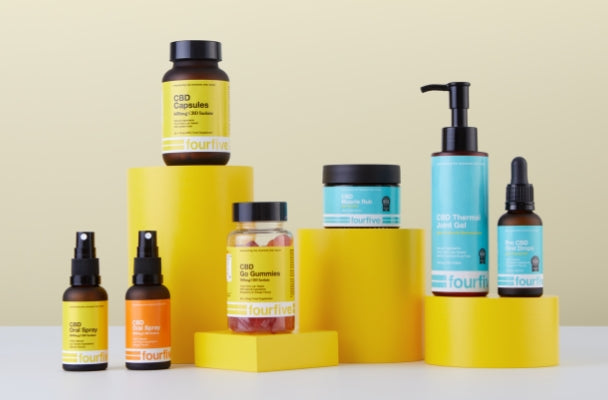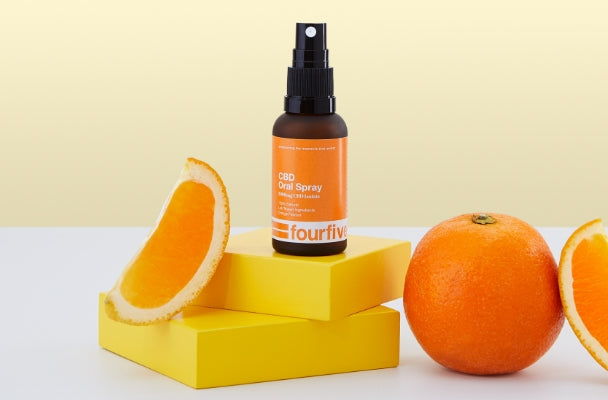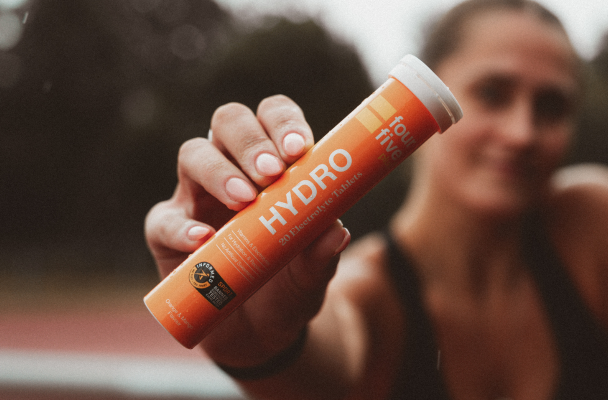If you had to make a list of wellness trends from the past decade, it’s likely that veganism and cannabidiol (CBD) would both be on it. In fact, they might both be vying for that number one spot.
The Vegan Society, the UK’s vegan population has quadrupled since 2014, with over 600,000 people now eating an entirely plant-based vegan diet. The number of CBD users is steadily rising as well. Statista estimates that 11 percent of the UK’s total population has tried CBD —around 7.5 million people.
There are some obvious parallels between the rise of veganism and CBD use. In both cases, people who get into them tend to value healthy living and social responsibility, whilst also having demanding taste when it comes to their foods and supplements. After all, if you’re going to prioritise putting healthy fuel in your body, you’re probably going to do a fair amount of research.
In this article, we’ll be exploring the link between these two highly beneficial additions to a healthy lifestyle, as well as how CBD can complement a vegan or plant-based diet. We will also discuss how we ensure that our own CBD products remain vegan-friendly, from each step of production to the final result.
What Is Veganism?
Although there is some variance in how people follow a vegan lifestyle, at its core, veganism is the choice to abstain (as much as possible) from the use of animal products. This includes food like meat, dairy and eggs, but many vegans will also apply the same philosophy to other items like clothing and cosmetics.
With the soaring popularity of veganism, as well as vegetarianism, it has become easier than ever to lead a vegan lifestyle. The last decade has seen better labelling on food, ethical clothing brands working with alternatives to leather and wool and, of course, more vegan food options in restaurants and supermarkets. There’s never been a better time to be plant-based!
However, one thing that new (and old!) vegans often find themselves surprised by, is the sneaky ways in which animal products can make their way into lives — particularly when it comes to food. You may know to keep an eye out for gelatin in sweets, but would you know to watch out for beeswax in your lip balm, or carmine dye in your clothing?
Sticking to your vegan or plant-based principles can be tricky, but many companies are taking steps to make sure their products can be enjoyed by the ever-growing vegan, veggie and plant-based community.
What is CBD?
CBD is a cannabinoid derived from the cannabis plant. It’s completely legal in the UK, provided that it contains less than 0.2 percent THC — which is the compound that gives cannabis its intoxicating properties.
CBD has been widely tested and found to be safe by a range of scientists and medical experts. People use it for a variety of reasons, including to improve their sleep, manage anxiety, and as a natural remedy to reduce aches and pains. CBD comes in so many forms, which can be consumed or applied topically to the skin.
For a more in-depth look at CBD, it’s compounds, active ingredients and the ways of taking it, you may like to visit the full What is CBD? article available on our website.
Another major reason that people choose CBD, whether as an oil, capsule or gummy, is to enhance their nutrition. Diet and nutrition is important for everybody to consider, but particularly for vegans who follow an entirely plant-based diet.
Is CBD vegan?
The short answer is: yes. CBD is collected by extracting natural oils from the cannabis plant, using a method known as CO2 extraction. Hemp is placed in a chamber, where a combination of pressure and carbon dioxide are applied to naturally release the pure CBD oil, which is then diluted with a carrier oil for safe and easy consumption.
CBD comes from a plant, so in its raw form, is 100% plant-based and suitable for vegans.
This answer may seem obvious, but as any seasoned vegan will tell you, even products you would assume to be entirely plant-based can include steps in the production process which prevent them from being vegan. For instance, when it comes to wine, many vineyards have historically used egg or milk protein to remove particles in the wine that make it appear cloudy.
When it comes to supplements, gel capsules or the coating on your vitamins can also be derived from animal products. At fourfive, we are proud to say that we don’t use any animal products in our vegan supplements, either during the production process or in the finished product.
We appreciate our vegan customers and support their decision to take an active role in their health and wellbeing, whilst protecting the rights of animals. When choosing a CBD product, always check the product label for a symbol or some text stating that it’s suitable for vegans.
What are the benefits of CBD for vegans?
We’ve touched briefly on the positive benefits that many CBD users have experienced from adding CBD into their lifestyle. However, what specific benefits can CBD offer to vegans?
For one thing, hemp is one of the rare ‘complete’ plant proteins and CBD is a rich source of amino acids. It also contains a range of B vitamins, which help boost energy, cognitive function, and even your metabolism. CBD has been praised for its antioxidant potential, as well. The US government even has a patent on CBD’s antioxidant uses.
CBD supplements can also deliver much-needed doses of iron, which alongside vitamin B12 can be something that some newer vegans who switch directly from a diet with plenty of meat or dairy can become deficient in. Iron is essential for the production of red blood cells in your body, and low levels of iron can cause fatigue, slow recovery from sports and in the longer term, even conditions like anaemia.
Although iron can be found in many plant-based favourites including leafy greens, fortified breakfast cereals and tofu, any extra sources certainly couldn’t hurt! CBD is a little powerhouse of vitamins and nutrients, and using it to supplement a healthy, balanced plant-based diet is incredibly simple!
How Can You Add CBD to a Vegan Diet?
There are so many ways to use CBD, but the best way for you will depend on which benefits attract you most. For example, you might find a CBD muscle rub does wonders for your back after an intense workout, but if you’re trying to get your daily dose of amino acids and vitamins, you’ll probably want to look at ingestible CBD.
Generally, ingestible CBD is the best way to use the compound to add extra nutrition and vitamins to your diet. With that in mind, let’s look at some of the best methods of adding CBD to your diet if you’re a vegan:
CBD Oil Tinctures
When most people think of CBD oil, tinctures are what come to mind, small bottles of liquid that come with a dropper (or, a spray applicator for easier dosing). CBD oils come in a wide range of flavours and potencies, so it’s easy to find one that fits your preferences.
There are a number of advantages to using CBD oil tinctures for supplementing a vegan diet. For one, it’s easy to precisely calculate your dosage. If one dropper contains 10 mg of CBD, it’s easy to measure out the perfect amount for your specific needs.
Perhaps the biggest benefit of CBD oil tinctures is their bioavailability — or your body’s ability to absorb and process the tincture. Typically, they’re applied sublingually by placing a bit of oil directly beneath your tongue. You should hold the oil there for at least a minute or two to let it sink into your tissue. This study by Front Pharmacol, published in 2018, has shown that sublingual CBD offers superior bioavailability when compared with other delivery mechanisms, so you’ll see more noticeable results with less time waiting. However, if you prefer a bit more flavour with your supplements, you can also add CBD oil to vegan foods and beverages — which we’ll give you a little more guidance on below.
CBD Capsules
Like CBD tinctures, capsules are a relatively simple product and consist of a smooth, soft capsule which is designed to be swallowed easily and is filled with the active CBD substance.
Aside from the CBD oil itself, the only other ingredients are the carrier oil, which allows the CBD molecules to enter the bloodstream more easily, and the capsule itself. Our CBD capsules also contain inulin, a natural fibre which helps to maintain gut health, supports healthy digestion, and can combat bloating or other common stomach complaints.
Interestingly, it is the capsule itself which is the most important thing to consider when looking for a vegan-friendly CBD capsule. Some capsules are made using gelatin, a substance that is produced using animal products. However, many companies have started using plant-based capsules instead, which be more costly to produce but allow accessibility for vegans, vegetarians and those who cannot consume gelatin for other reasons.
CBD capsules are popular for their ease of use. Each capsule contains exactly the same amount of CBD, so there’s zero measuring involved.
Whilst CBD capsules are a little less versatile than tinctures (for instance, you wouldn’t want to mix them into your food) they’re easy to integrate into your daily routine, and so discreet that they can be taken anywhere.
How to Add CBD Oil to Vegan Foods and Drinks
echnically, you can add CBD oil to more or less anything you eat or drink for a quick, easy boost of nutrition. Squeezing a few droppers into your breakfast cereal or your morning coffee takes no effort or time, and assuming those things are vegan to start with, you’ve just whipped up a homemade CBD edible.
However, some studies have shown CBD is absorbed more effectively when it’s accompanied by healthy fats. So if you’re looking to have a CBD-infused vegan breakfast, you might want to add your droppers of oil to a bowl of coconut yoghurt instead of cornflakes. And whilst coffee does a good job of masking the taste of CBD, you might see better results by adding it to a smoothie with banana or avocado instead.
You can also use CBD when preparing more complex dishes, such as vegan biscuits, brownies or other bakes. One thing to keep in mind, however, is that CBD is highly sensitive to heat, so you’ll want to stay away from recipes that require very high temperatures, such as deep-fried foods.
There are a growing number of books, YouTube channels, and other resources on cooking with CBD, so you’ll never be short of inspiration. Just about any vegan dish you can imagine can be supplemented with CBD—and there’s always room to experiment.
Final Verdict: Should I Try CBD If I’m Vegan?
We hope that you feel more informed about the benefits that CBD can provide for those living a vegan lifestyle, and have a few ideas of how you could integrate it if you so wish (CBD breakfast bars, anybody?).
Although there is very little risk involved with adding a substance like CBD to your diet, you should always talk to your doctor before taking a new supplement (CBD or otherwise). Most experts will agree that CBD is safe for the vast majority of people, and studies have shown time and again that CBD is non-addictive and will not give the user any unwanted narcotic side effects. Therefore, if you decide it isn’t for you, quitting is as simple as not buying your second product.
How you want to express your veganism or manage your diet is up to you, of course, and the final call on whether to try CBD is yours. But if you’re the kind of person who values the health of animals, the health of the planet, and the health of your own body, CBD could be a great plant-based option for you.Feel free to browse our full range of CBD products, as well as other supplements for those aiming to lead a fulfilling, healthy lifestyle.

